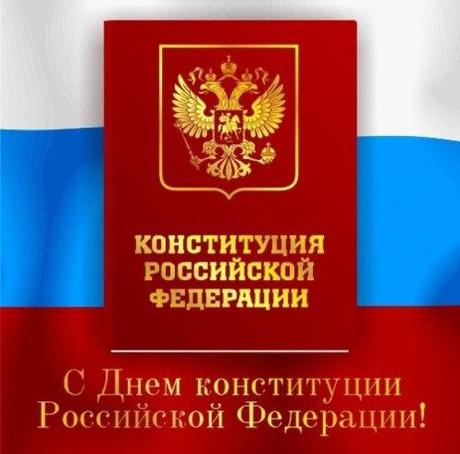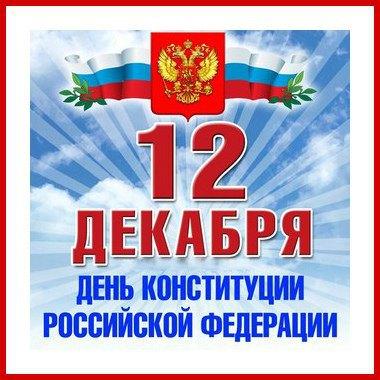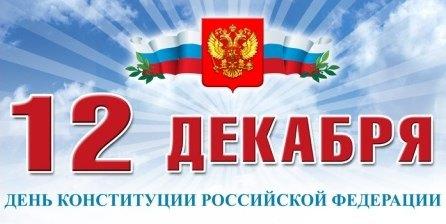On the Twelfth day of December, my true love gave to me a copy of the Russian Federation Constitution. Sort of has a ring to it, right?
It is the twelfth day of this month that marked “Constitution Day” in Russia. Russians call it день Конституции, and frankly most of them have never read it.

The Soviet Union had a constitution too, and most of the Soviet populace understood that it meant little to their ordinary lives, so please do not be surprised that most have not read this current one, either. The document became the law of the land in 1993 after a nationwide referendum, and until the middle 2000s, the day was an official national holiday.
The Levada Centre has released a nationwide poll showing that most of Russia’s citizens believe that it is a good document, but most seem to have only a basic knowledge of the contents, nor have read it. That is hardly surprising, and we might guess that similar results could be said of any number of Western countries. The poll found that only 12 percent of those asked claimed to have a working knowledge of the contents.

Levada reported an increase in the number of Russian citizens who trust the Constitution to enshrine their rights and liberties. Last year that number was 29 percent and has since grown to 38 percent in 2014. For many, the Constitution does not matter in everyday life. The same polling firm in April of 2010 reported that a majority of Russian preferred “order” over the concept of democracy, so perhaps such attitudes are to be expected.
2013 was the twentieth anniversary of the Russian Federation Constitution and at a gala celebration, President Vladimir Putin remarked that,“Our people made a historical choice in favour of the Constitution at the referendum on December 12, 1993. Russia got a directly effective document that allowed us to avoid the tragedy of the dissolution of our state, helped stop the devastating spread of civil confrontation, and prevented the nation from once again descending down the path of settling political accounts, as had already happened several times in our history.”

Mr. Putin went on to say last year that “The Constitution opened a new, constructive path to development on the basis of clear goals, intentions and values. And today, we have every right to state that all the constitutional norms and provisions are in demand. You can open any chapter or article in the Constitution to see this for yourself.”
The Russian Federation Constitution is made up of two sections which are divided into nine chapters. Readers may click on any of the chapter links below for a English version of each chapter.
SECTION ONE
Chapter 1. The Fundamentals of the Constitutional System
Chapter 2. The Rights and Liberties of Man and Citizen
Chapter 3. The Russian Federation
Chapter 4. The President of the Russian Federation
Chapter 5. The Federal Assembly
Chapter 6. The Government of the Russian Federation
Chapter 7. The Judiciary
Chapter 8. Local Self-Government
Chapter 9. Constitutional Amendments and Revisions
SECTION TWO
Concluding and Transitional Provisions
Given the state of the world today, each of us should re-read our own Constitutional documents, and then demand that our respective leaders follow what they have sworn to defend. It would not solve every problem or cure every evil on the planet, but it might be a nice start.
We hope that this piece will educate readers about what is contained in the RF Constitution, including our Russian friends and neighbors. Perhaps each of us can learn something in the process.
Thank you,
Mendeleyev
